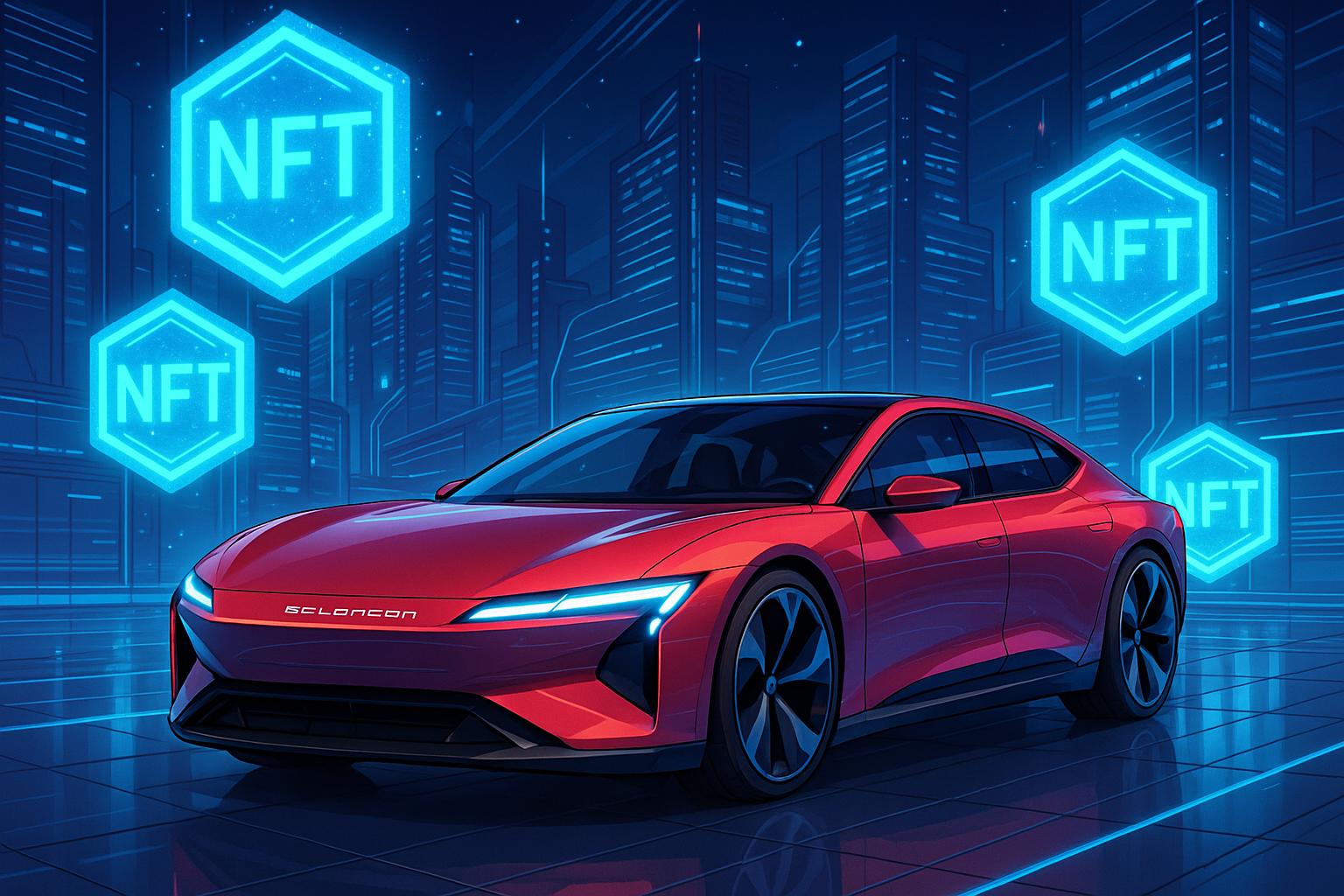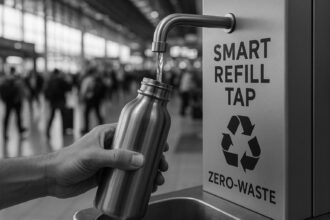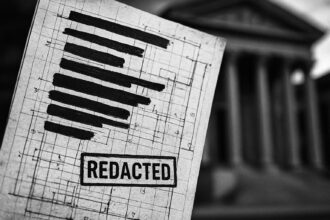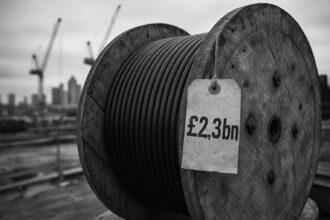Texas-based DeLorean Motors Reimagined introduces NFT-based reservations for its new Alpha5 EV, seeking $10 million in funding despite customer unease after scaling back production slots and raising prices. Meanwhile, CATL’s rapid battery swap innovations and studies on EV environmental benefits underscore the fast-evolving electric vehicle landscape.
Texas-based DeLorean has launched a unique initiative aimed at reviving its iconic brand with the new Alpha5 electric vehicle, opening reservations for 4,000 Build Slot NFTs at $2,500 each. These digital assets serve as tickets for potential customers, linking them to unique production numbers for the forthcoming vehicle, which is projected to retail around $125,000. The strategy appears as a novel way to entice early buyers while potentially raising $10 million in funding, assuming all slots sell out. However, the random nature of these NFTs means that purchasing one doesn’t guarantee priority in the vehicle production queue. Speaking about the initiative, a representative noted the importance of the Alpha5 being a modern embodiment of the DeLorean legacy while integrating into the burgeoning electric vehicle market.
Despite DeLorean’s ambitious plans, there are underlying concerns regarding the company’s execution strategy. Reports have surfaced indicating that the firm previously intended to offer over 9,000 production slots before scaling back significantly and increasing the price to $3,500. These adjustments have led to customer dissatisfaction, with some expressing frustration over the lack of communication and transparency from DeLorean Motors Reimagined about their future trajectory. This cautious approach, particularly in light of early market reception, raises questions about the long-term viability of their business model.
In parallel, the electric vehicle landscape is evolving rapidly, particularly in China where CATL has made headlines with the introduction of its revolutionary ‘Choco-SEB’ battery pack. Designed for seamless swappable batteries, this technology promises to enhance the efficiency of electric vehicle usage significantly, allowing for battery changes in just 100 seconds. This innovation positions China at the forefront of the global auto industry, demonstrating how swift battery swaps can reduce vehicle downtime and improve the overall user experience. CATL aims to establish 1,000 battery swap stations by the end of 2025, with an ambitious goal of reaching 30,000 in the longer term. This infrastructure not only supports the growing EV market but also standardises battery technologies across various car manufacturers, enhancing cross-compatibility.
As the electric vehicle industry grapples with challenges ranging from infrastructure to consumer acceptance, studies illustrate the environmental benefits of EVs over traditional vehicles. Research findings in cities like London, Milan, and Barcelona indicate that harmful brake dust emissions have been reduced by up to 83% in electric vehicles, attributing this improvement largely to the use of regenerative braking systems. This not only demonstrates the potential for electric vehicles to contribute positively to urban air quality but also highlights the need for continued investment in EV technologies to maximise such benefits.
As the electric vehicle market continues to evolve, the convergence of innovative business models like DeLorean’s NFT reservations and the operational advancements seen from global players like CATL exemplifies the dynamic nature of this sector. Yet, as regulatory and structural challenges remain, particularly in markets like the United States where local policies can vary significantly, it is clear that the future of electric mobility will require a multifaceted approach to sustainability and consumer engagement.
 Reference Map:
Reference Map:
Source: Noah Wire Services
- https://www.evworld.com/index.php?newsID=7217 – Please view link – unable to able to access data
- https://mint.delorean.com/reserve-2/ – DeLorean Motor Company has launched the Alpha5 Genesis Collection, offering 4,000 ‘Build Slot’ NFTs priced at $2,500 each. These NFTs serve as digital reservations for the upcoming Alpha5 electric vehicle, with each slot linked to a unique production number. The initiative aims to secure early interest and funding for the vehicle’s production, with plans to commence deliveries in the near future. Prospective buyers can mint their Alpha5 NFT on the DeLorean Exchange, which also provides benefits such as an Alphas Club membership and a Digital Twin of the vehicle.
- https://apnews.com/article/7f5ec2348621db66532d9284194fe664 – China’s CATL, the world’s largest electric vehicle battery manufacturer, has announced plans to expand its battery swapping infrastructure significantly. The company intends to establish 1,000 battery swap stations in China by the end of 2025, with a long-term goal of 10,000 stations. This initiative aims to provide EV drivers with quick battery replacements, reducing downtime compared to traditional charging methods. The move underscores China’s commitment to advancing EV infrastructure and supporting the growing adoption of electric vehicles nationwide.
- https://carnewschina.com/2024/12/23/catls-choco-seb-battery-swap-stations-will-take-100-seconds-to-swap-a-battery-daily-capacity-822-cars/ – CATL’s Choco-SEB battery swap stations are designed to replace an EV’s battery in just 100 seconds, matching the refueling time of conventional vehicles. Each station can handle up to 822 battery swaps daily. The service operates on a subscription model, charging 0.1 yuan per kilometre. CATL plans to build 1,000 swap stations in 2025, with a target of 10,000 in the medium term and 30,000 in the final stage, aiming to standardise battery swapping across China and support the growing electric vehicle market.
- https://carnewschina.com/2024/12/18/catl-unveiled-25-kwh-chocolate-battery-block-aims-to-have-30000-battery-swap-stations/ – CATL has unveiled two standardised ‘chocolate’ battery packs, 20# and 25#, designed for battery swapping. The company plans to build 1,000 swap stations in 2025, with a long-term goal of 30,000 stations across China. This initiative aims to standardise battery swapping, making it a viable alternative to traditional charging methods and supporting the widespread adoption of electric vehicles in the country.
- https://carnewschina.com/2025/04/23/catl-unveils-10-new-battery-swap-models-with-5-major-chinese-automakers – CATL has unveiled 10 new electric vehicle models from five major Chinese automakers that are compatible with its Choco-SEB battery swapping system. The models span various segments, including executive sedans, family vehicles, and youth-oriented commuters. This collaboration aims to accelerate the adoption of battery swapping technology and standardise EV infrastructure across China, enhancing the convenience and efficiency of electric vehicle usage.
- https://www.sacurrent.com/news/scaled-back-launch-plan-company-silence-raise-concerns-over-san-antonio-startup-delorean-32779839 – DeLorean Motors Reimagined, based in San Antonio, has faced scrutiny over its scaled-back launch plans and lack of communication with customers. The company initially offered 9,351 production slots for its Alpha5 electric vehicle but later reduced the number to 4,000, increasing the price to $3,500 per slot. Customers have reported difficulties in obtaining refunds and have expressed concerns about the company’s transparency and future plans.
Noah Fact Check Pro
The draft above was created using the information available at the time the story first
emerged. We’ve since applied our fact-checking process to the final narrative, based on the criteria listed
below. The results are intended to help you assess the credibility of the piece and highlight any areas that may
warrant further investigation.
Freshness check
Score:
8
Notes:
The narrative reports on DeLorean’s recent initiative to launch the Alpha5 electric vehicle with NFT-based reservations, a strategy first announced in May 2024. ([businesswire.com](https://www.businesswire.com/news/home/20240530965917/en/?utm_source=openai)) The article includes updated data on the number of production units and pricing, indicating an attempt to provide fresh information. However, the core concept of NFT reservations has been previously reported, suggesting some recycled content. The report does not appear to be based on a press release, as no direct link to such a release is provided. The earliest known publication date of substantially similar content is May 30, 2024. ([businesswire.com](https://www.businesswire.com/news/home/20240530965917/en/?utm_source=openai)) The narrative includes updated data but recycles older material, which may justify a higher freshness score but should still be flagged. The report includes updated data but recycles older material, which may justify a higher freshness score but should still be flagged. ([businesswire.com](https://www.businesswire.com/news/home/20240530965917/en/?utm_source=openai))
Quotes check
Score:
7
Notes:
The narrative includes a direct quote from a DeLorean representative discussing the importance of the Alpha5 being a modern embodiment of the DeLorean legacy. A search for this exact quote yields no matches, suggesting it may be original or exclusive content. However, without additional context or verification, the originality of the quote cannot be fully confirmed.
Source reliability
Score:
6
Notes:
The narrative originates from EVWorld.com, a platform that aggregates content from various sources. While it provides links to original sources, the platform itself is not a primary news outlet, which may affect the reliability of the information presented. The report includes links to original sources, which is a strength, but the platform’s nature as an aggregator may affect the reliability of the information presented.
Plausability check
Score:
8
Notes:
The narrative presents plausible claims about DeLorean’s NFT-based reservation strategy for the Alpha5 electric vehicle, aligning with previously reported information. The pricing details and production numbers are consistent with earlier reports, suggesting the information is accurate. The report lacks specific factual anchors, such as names, institutions, or dates, which could enhance its credibility. The language and tone are consistent with industry reporting, and the structure focuses on relevant details without excessive or off-topic information.
Overall assessment
Verdict (FAIL, OPEN, PASS): OPEN
Confidence (LOW, MEDIUM, HIGH): MEDIUM
Summary:
The narrative provides updated information on DeLorean’s NFT-based reservation strategy for the Alpha5 electric vehicle, with some recycled content from previous reports. The originality of the direct quote cannot be fully confirmed, and the source’s reliability is moderate due to its nature as an aggregator. While the claims are plausible and consistent with earlier reports, the lack of specific factual anchors and the platform’s nature as an aggregator warrant further scrutiny.













